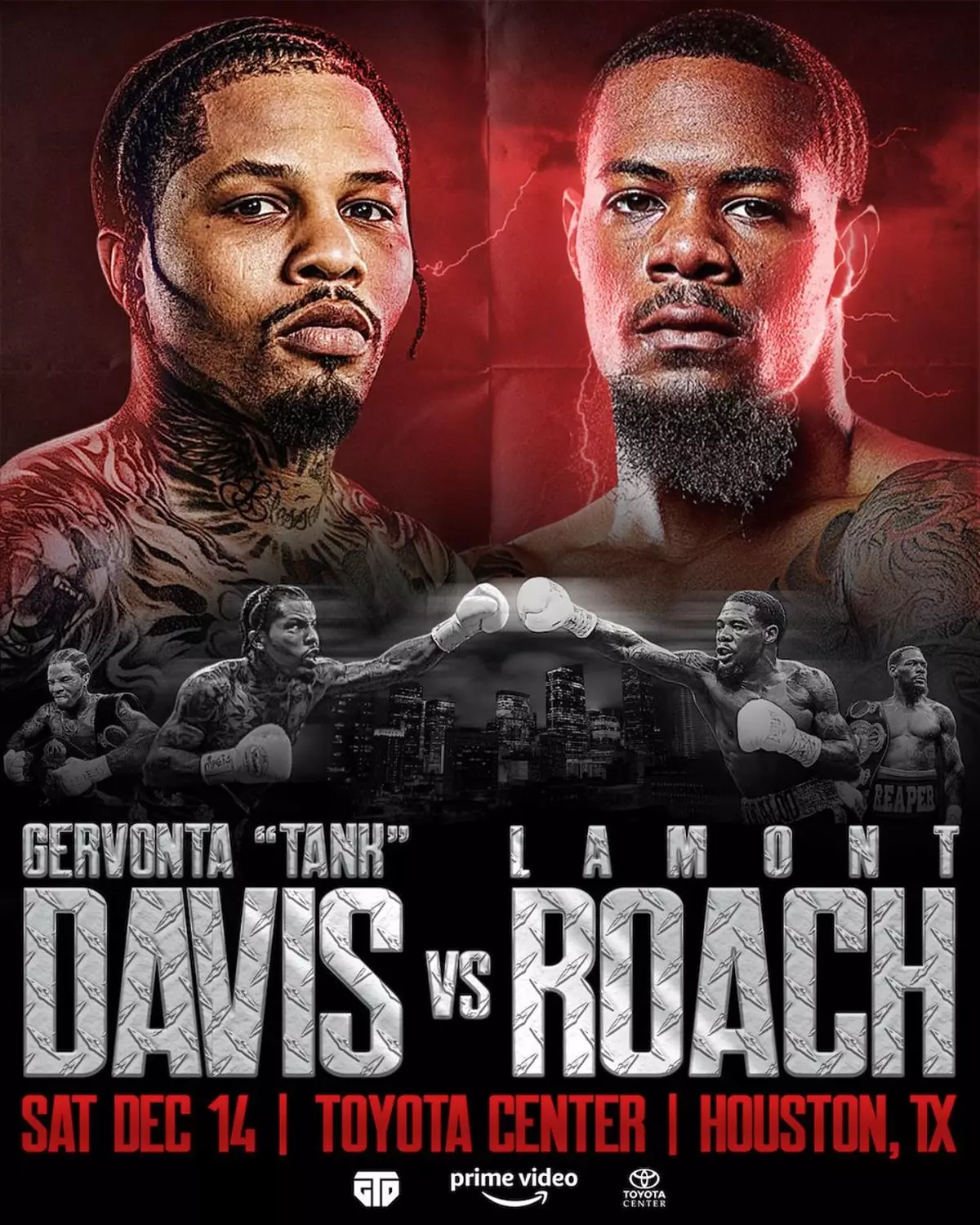Lamont Roach’s upcoming bout against WBA lightweight champion Gervonta “Tank” Davis has garnered significant attention, particularly due to the inclusion of a rematch clause in their contract. Scheduled for March 1st, the fight’s venue remains undisclosed, but excitement is brewing among fans, who are polarized in their predictions. Roach (25-1-1, 10 KOs) has publicly proclaimed his confidence, urging supporters to brace themselves for the possibility of two encounters between him and the undefeated Davis (30-0, 28 KOs). However, the general sentiment leans toward skepticism, with many boxing enthusiasts dismissing Roach’s chances as unrealistic.
On social media platforms, boxing aficionados have expressed their doubts about Roach’s ability to overcome Davis. The 29-year-old challenger is facing a palpable wave of mockery, as fans assert that he lacks the skill and power necessary to defeat a fighter with Davis’s track record. Roach’s assertions of triumph in both potential fights have been met with laughter, highlighting a disconnect between his confidence and general public perception. Critics use Roach’s claims to illustrate what they perceive as overconfidence, pointing out that many believe his dreams of a rematch are merely aspirational.
In analyzing this matchup, one cannot overlook the peculiar choice of Roach as a contender in a landscape filled with formidable opponents. Many fans expected Davis to engage with more challenging fighters such as Edwin De Los Santos or Keyshawn Davis. Instead, Roach’s selection has been perceived as a strategic move, reflecting Tank’s career-long pattern of choosing bouts that bypass the most dangerous challengers. Historically, Davis’s management has favored soft matchmaking, presenting fights that offer a higher likelihood of victory while minimizing risk—a tactic that has drawn criticism.
Initially, there was a justification that Roach’s selection could be linked to potential ticket sales in the Baltimore and Washington, D.C. regions. However, the rescheduling of the fight to take place at the Toyota Center in Houston complicates this narrative, undermining the regional argument for why Roach was chosen. Fans and analysts alike have noted that this choice seems less about competitive merit and more about maintaining an undefeated record for Davis. The mismatch raises questions about the integrity of the sport itself, suggesting a prioritization of profitability over competitive fairness.
Roach has publicly stated his intentions to challenge for the light welterweight title against Rayo Valenzuela should he emerge victorious. This statement conveys a degree of ambition that contrasts with perceptions of his current fight. The question looms: can Roach truly defy the odds and position himself for such a title bout, or is he setting himself up for disappointment against a well-protected champion? As the fight date approaches, the boxing community is eagerly waiting to see who will emerge victorious. Regardless of the outcome, this clash is emblematic of broader trends in boxing—particularly the tension between commercial interest and authentic competition.

